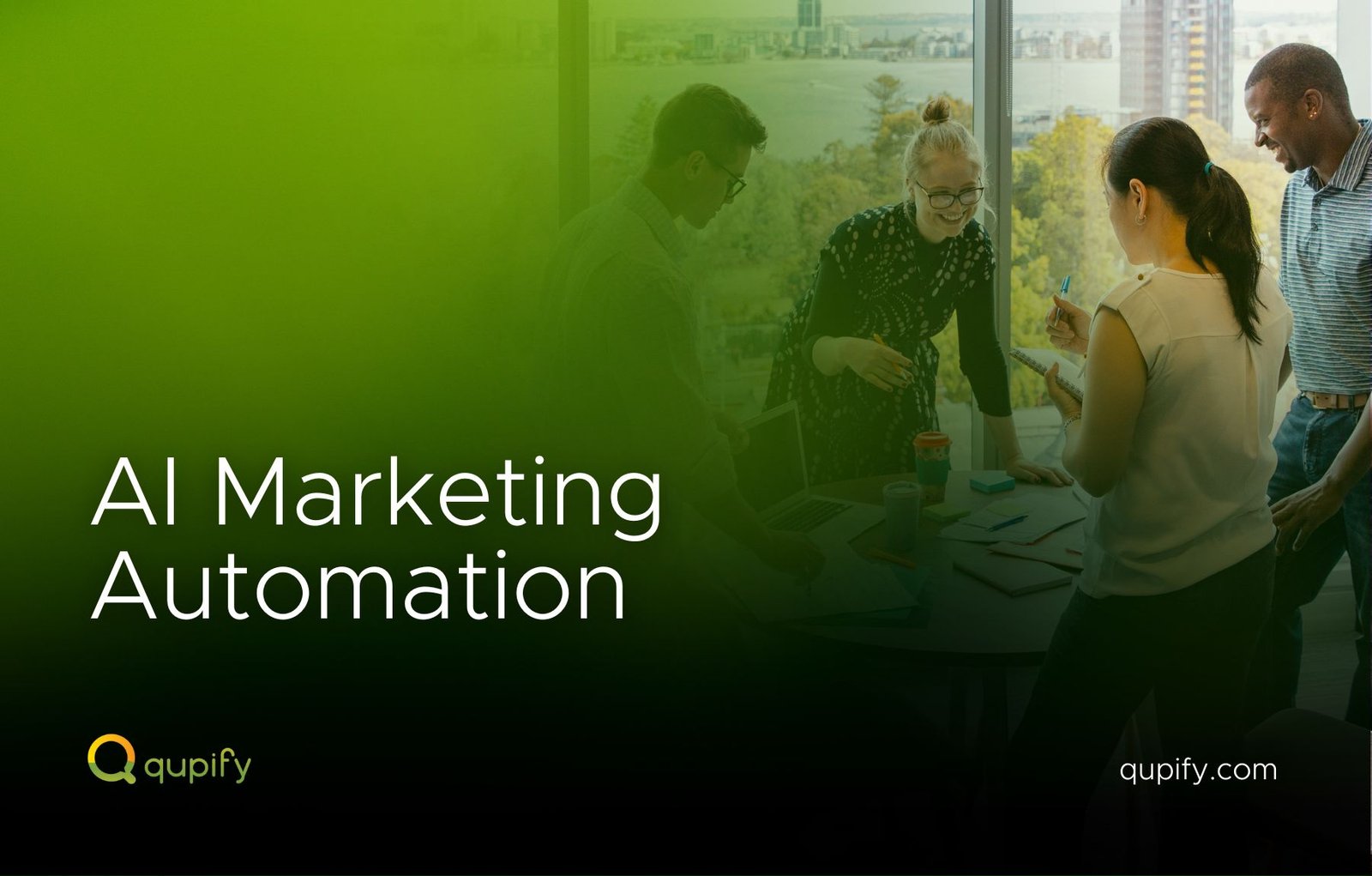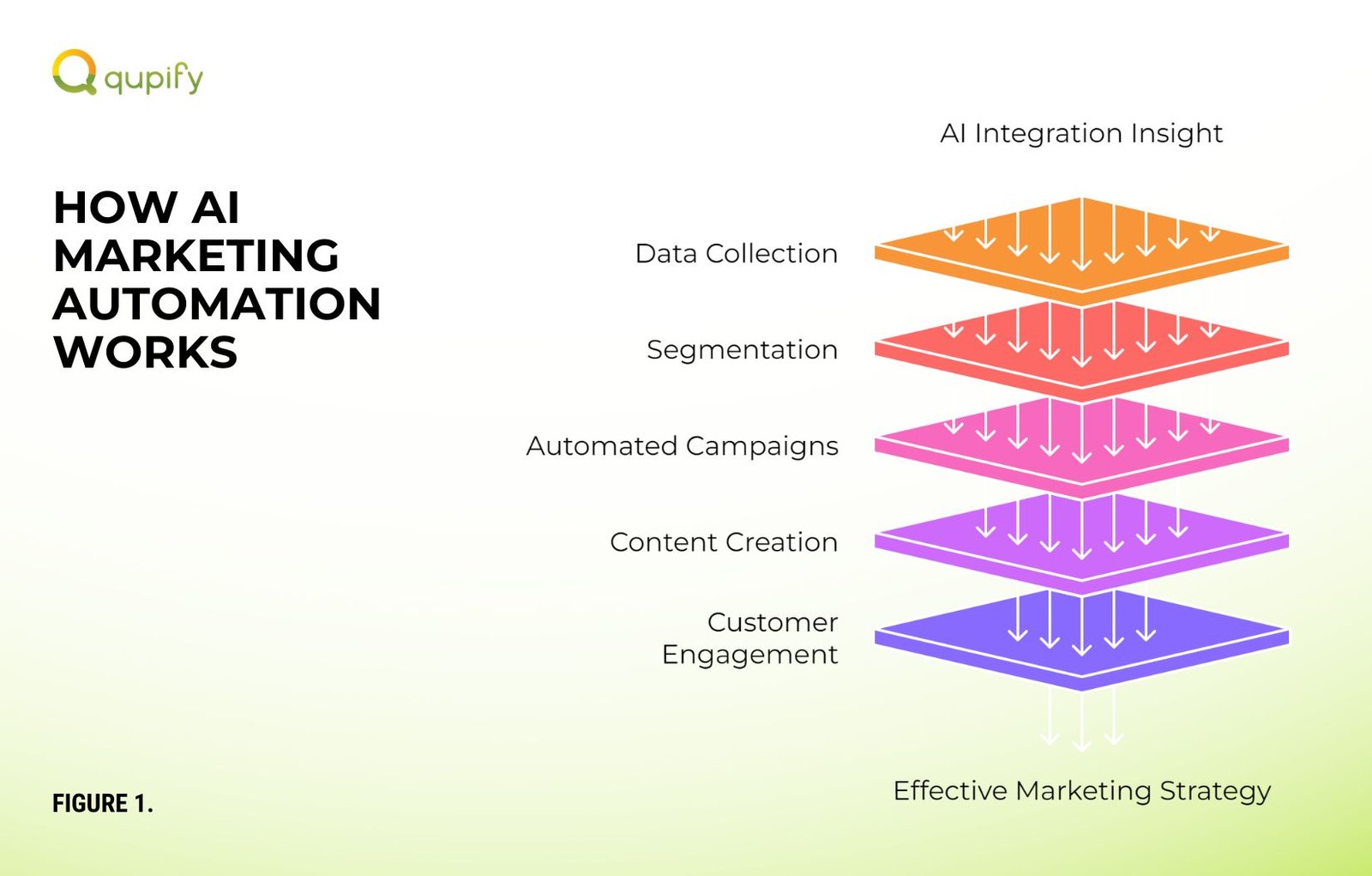Why AI Marketing Automation is a Game-Changer for Businesses

What is AI Marketing Automation?
Before we dive into the intricacies of AI marketing automation, it’s important to understand what each term means and how they come together.
AI (Artificial Intelligence) refers to the simulation of human intelligence processes by machines. These processes include learning, reasoning, problem-solving, perception, and language understanding. AI allows machines to analyze vast amounts of data, recognize patterns, and make decisions with minimal human intervention.
Marketing automation is the use of software to handle repetitive marketing tasks such as email campaigns, social media scheduling, audience segmentation, and ad management. These tools streamline workflows, save time, and ensure consistent marketing efforts.
Integrating AI into marketing automation doesn’t just automate tasks—it optimizes them. AI enhances marketing efforts with personalized insights and predictive analytics, enabling businesses to deliver highly targeted, effective campaigns. For instance, AI can predict customer behavior and preferences, while automation ensures timely delivery of customized content.
This combination has seen significant advancements thanks to innovation across various regions, including contributions from Massachusetts AI companies. These companies are shaping tools and solutions that integrate AI into marketing strategies, pushing the boundaries of automation.
Advantages of AI Marketing Automation
AI marketing automation brings several advantages to businesses, helping them deliver better results with less effort. Let’s take a closer look at the key benefits:
1. Increased Efficiency
One of the most apparent advantages of AI marketing automation is increased efficiency. By automating repetitive tasks like email sending, data entry, or social media posting, businesses can free up time and resources.
Marketers can focus on strategic decision-making and creativity, while the automation system handles time-consuming activities.
2. Personalized Customer Experience
AI excels in collecting and analyzing vast amounts of data, enabling it to create highly personalized experiences for customers. By understanding individual customer preferences, behaviors, and past interactions, AI can recommend products, tailor content, and send personalized offers in real time.
For instance, e-commerce businesses can create personalized shopping experiences, offering product recommendations based on previous browsing behavior. These personalized experiences help improve customer satisfaction and drive sales.
3. Improved Decision-Making
AI can process vast amounts of data and provide actionable insights that enable marketers to make more informed decisions. Whether it’s optimizing ad spend, analyzing customer sentiment, or predicting market trends, AI helps marketers make data-driven choices that lead to better outcomes.
4. Cost Savings
Although implementing AI marketing automation tools may involve upfront costs, the long-term savings are substantial. Automating tasks reduces the need for additional human resources, and optimized campaigns lead to a more efficient allocation of marketing budgets.
5. Real-Time Adaptation
The ability to adapt in real time is another significant advantage of AI marketing automation. Traditional marketing strategies often require marketers to manually adjust campaigns based on data. With AI, marketers can make adjustments instantly, optimizing campaigns as they run.
How AI Marketing Automation Works
Understanding the mechanics of AI marketing automation can give businesses better insight into how to integrate it into their marketing strategies. Here’s a breakdown of how it works:

1. Data Collection and Analysis
AI marketing tools rely on vast amounts of data to generate insights. These tools collect data from various sources, including website activity, email interactions, social media engagement, and customer feedback. The data is then processed and analyzed to understand customer preferences, behaviors, and trends.
AI can sift through large datasets far more efficiently than humans, identifying patterns that might be missed manually. This data can then be used to segment audiences, predict customer behavior, and personalize content.
2. Segmentation and Targeting
AI excels at audience segmentation by analyzing customer data and creating distinct groups based on factors such as demographics, past interactions, interests, and purchasing behavior. AI can then automate the process of sending the right content to the right audience segment.
3. Automated Campaigns
Once the audience is segmented, AI can automate campaigns across different channels, including email, social media, and digital ads. AI tools can schedule posts, personalize email subject lines and content, and even decide the optimal timing for sending messages.
4. Content Creation
AI-driven content generation tools have made it easier to create optimized content for marketing campaigns. AI can analyze trending topics, customer interests, and engagement data to generate content that resonates with specific segments.
5. Chatbots and Customer Service
AI-powered chatbots are increasingly being used to automate customer service. These bots can handle inquiries, provide product recommendations, and even complete purchases. By automating customer support tasks, businesses can offer 24/7 service without the need for human intervention.
Challenges of AI Marketing Automation
While AI marketing automation offers numerous benefits, there are also challenges that businesses need to consider:
1. Data Privacy and Security. AI systems rely on customer data to personalize experiences, raising concerns about privacy and data security. Marketers must ensure they follow data protection regulations (such as GDPR) to protect customer information.
2. Algorithm Bias.AI systems are only as good as the data they’re trained on. If the data is biased, the AI can perpetuate those biases, leading to skewed targeting or exclusion of certain groups. Regular audits of AI algorithms are necessary to ensure fairness.
3. Over-Reliance on Automation. AI marketing automation is a powerful tool, but it’s essential not to rely too heavily on it. Human creativity, empathy, and judgment are still crucial in marketing. Businesses should balance AI automation with human input to maintain authenticity and connection with customers.
Conclusion
AI marketing automation is transforming how businesses operate, offering unmatched advantages in efficiency, personalization, and performance measurement.
By streamlining workflows, enhancing customer experiences, and delivering data-driven insights, AI is empowering companies to stay ahead in a highly competitive landscape.
For businesses ready to invest in the future of marketing, AI-driven automation is not just an option—it’s a game-changing opportunity to drive growth and build lasting customer relationships.



